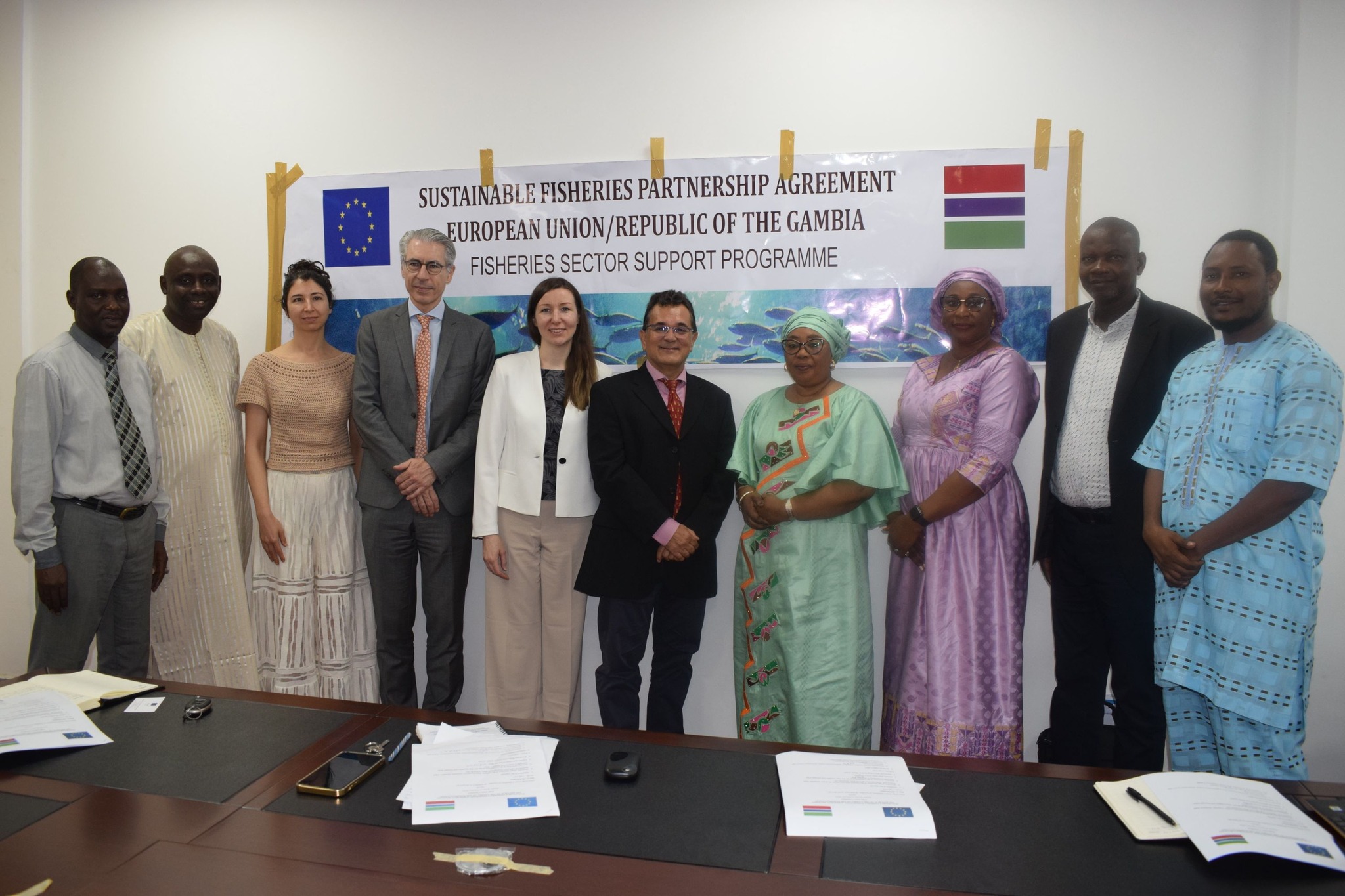Gambiaj;com – (Banjul, The Gambia) – The Gambia is preparing to enter negotiations with the European Union over a new fishing protocol, as the current Sustainable Fisheries Partnership Agreement (SFPA) is set to expire on July 30, 2025. The agreement, which enables EU vessels to fish for tuna and demersal species in Gambian waters, has provided an annual contribution of €550,000 over the past six years.
Speaking before lawmakers, Minister of Fisheries and Water Resources Musa Drammeh confirmed that while the overarching agreement remains intact, the protocol governing its implementation will lapse, rendering its provisions unenforceable until fresh terms are negotiated.
“The main fisheries agreement with the European Union is still in force, but the protocols governing the agreement have expired,” Drammeh said. “So we cannot continue to execute the content of the agreement until fresh arrangements are made.”
Both parties have acknowledged dissatisfaction with the current terms. Drammeh noted that many Gambians, including members of parliament, believe the deal inadequately benefits the country.
Conversely, the EU has questioned whether its financial contribution aligns with the volume of fish caught in Gambian waters. “Both the ministry and the EU have agreed to have a rethink about the future of our relationship,” he stated.
The EU has already opened a call for evidence and evaluation to guide the upcoming talks, with the aim of renewing the protocol swiftly to avoid disruptions in access for European fishing fleets.
The Gambia’s coastal waters are relatively modest—its Exclusive Economic Zone spans just 80 km—making the scale of the agreement smaller than others in the region. Yet local critics argue that the current arrangement has not done enough to stimulate job creation or bolster the national economy.
In response, the Fisheries Ministry has recently ramped up efforts to strengthen domestic capacity. In 2024, it constructed 20 artisanal fishing boats fully equipped with nets, engines, and other gear, which were distributed across key coastal communities including Kartong, Sanyang, Tanji, Gunjur, Brufut, and Banjul. The ministry is also shifting focus toward aquaculture to diversify fish production and improve sustainability.
Additionally, Minister Drammeh announced significant regulatory changes, including a 100% increase in fishing license fees and a 300% hike for fishmeal licenses.
Fishing trawlers have now been officially categorized as industrial vessels and are restricted to fishing beyond 9 nautical miles from the coast, up from the previous 7-mile limit.
He also reported that The Gambia continues to meet all EU fisheries compliance standards, which are key for market access. Notably, enforcement actions have intensified: in recent months, one foreign vessel was fined D23 million, and others have been fined up to D80 million for illegal fishing activities.
Several foreign nationals were also arrested and penalized for catching protected species such as juvenile fish.
The ministry has hired a consultant to conduct a comprehensive review of the country’s water resources policy, aiming to ensure long-term sustainability of its marine economy.
As the expiration date approaches, the forthcoming negotiations will be critical in shaping the future of The Gambia’s fisheries sector. Both the government and the EU are expected to weigh economic, environmental, and employment considerations in crafting a deal that better reflects shared interests and sustainable use of marine resources.










